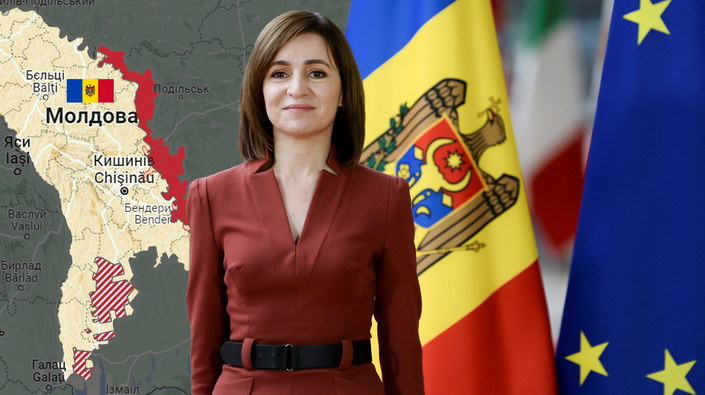Nearly fifty European leaders will meet on Thursday in this small country which lives in fear of destabilization maneuvers from Moscow.
The image will be strong and loaded with symbols: nearly 50 European leaders are meeting this Thursday, June 1 in Moldova, a small country which is witnessing the invasion of neighboring Ukraine by the Russian army as closely as possible and lives in fear. maneuvers to destabilize Moscow.
A participation of Ukrainian President Volodymyr Zelensky would give even more relief to this unprecedented gathering, near the capital, Chisinau. Nothing has been announced, but he could be part of the “European family” after having crisscrossed the planet in recent weeks – Italy, Germany, France, United Kingdom, Saudi Arabia for the Arab League summit, Japan for the G7 summit.
The organization of this second summit of the European Political Community (EPC) is a considerable logistical challenge for Moldova, a former Soviet republic of less than 3 million inhabitants, very fragile economically.
“Family photo”
“There has simply never been an event of this magnitude in the history of Moldova,” summarizes Felix Hett, expert at the German foundation Friedrich-Ebert-Stiftung. To arrive at the “family photo” of the 47 heads of state and government expected, a complex aerial choreography was put in place to land this host of leaders at the capital’s small airport. About 2,000 participants are expected, including 700 journalists, at Mimi Castle, a winery located in the village of Bulboaca, about 35 km from the capital Chisinau and just as much from Tiraspol, the capital of Transdniestria, separatist region pro-Russian group of 300,000 inhabitants in the east of the country.
A gathering much larger than the European Union (20 invited countries in addition to the 27 members of the bloc), this forum, imagined by French President Emmanuel Macron, brings together countries with very different profiles and backgrounds: Armenia, Iceland, Norway, Switzerland , Turkey, United Kingdom, Serbia, Azerbaijan… Compared to the first meeting in Prague, which brought together 44 countries in October 2022, three additions: Andorra, Monaco and San Marino. “You have to see who is in the photo, but also who isn’t,” says Sébastien Maillard, director of the Jacques Delors Institute. “It’s also an opportunity to show that the Europeans are discussing their strategic interests among themselves, without the Americans,” he told AFP.
“Moldova is not alone”
For Moldova, this is an important moment, and the opportunity to reiterate – with force – its will and its impatience to join the EU. “Russia will continue to be a great source of instability in the years to come and we must protect ourselves,” summed up a few days ago, in an interview with AFP, Maia Sandu, the president of this small country. “We believe that we can only save our democracy by being part of the EU”.
As the summit approached, Moldova tweeted a series of short video messages from the main European leaders, like German Chancellor Olaf Scholz stressing the importance of this meeting of “the united European family”. All messages were followed by the hashtag #MoldovaIsNotAlone (Moldova is not alone). If, officially, this meeting at 47 is not the forum where to debate the calendar of accession, the question will be omnipresent behind the scenes. In June 2022, the EU granted Ukraine and Moldova official candidate status. Both countries now want to take the next step.
“A positive decision”
During the last visit to Kyiv by European Commission President Ursula von der Leyen, Volodymyr Zelensky expressed his impatience. “Now is the time to take a positive decision on the opening of accession negotiations,” he said. A third EPC summit is scheduled for October in Granada (Spain) and a fourth in the first half of 2024 in the United Kingdom, respecting an alternation between member and non-member countries of the Union.
This community, which is not a new institution and operates without the sacrosanct final communiqué specific to international high masses, will it be able to register over time? “After the war, perhaps there won’t be as much eagerness to get together,” admits Sébastien Maillard. This informal forum has a unique role to play and could continue, he believes, however.
This article is originally published on lefigaro.fr


